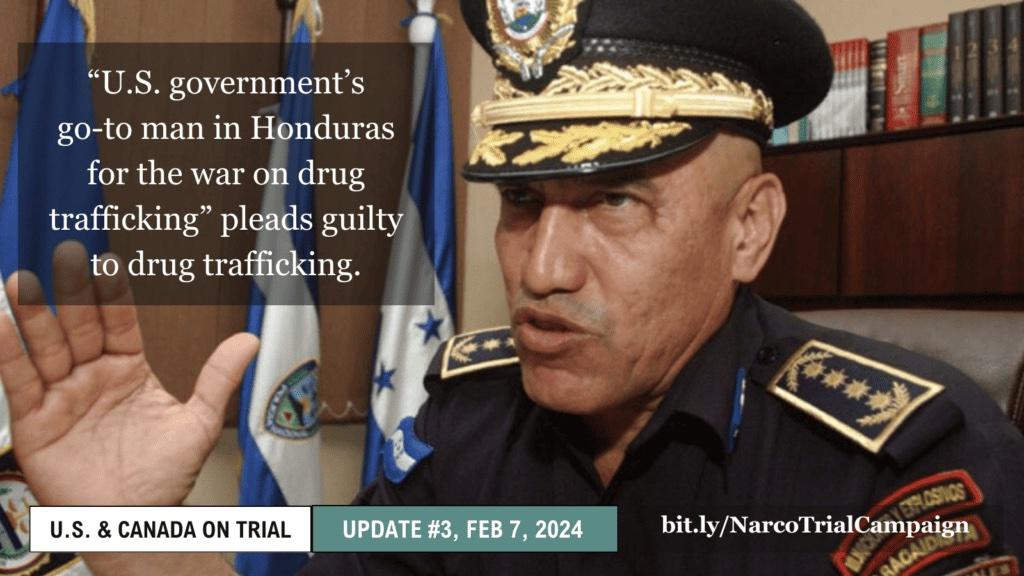Rights Action supports, and encourages Canadians and Americans to follow this ‘Putting the U.S. and Canada On Trial’ campaign.
The repressive, corrupt, drug-trafficking regime in Honduras was in power from June 28, 2009 (seizing power after a U.S. and Canadian-backed military coup) through to January 27, 2022. During the entire time, the U.S. and Canada basically lied about their relations with the regime in Honduras, and referred to it as a “democratic allie”. Countless North American companies, banks and investors happily did business with the “Open for Global Business” regime, and some of them directly contracted with known drug traffickers.
This ‘Putting the U.S. and Canada On Trial’ campaign is an important effort to once again expose, and try and achieve a small amount of political or even legal accountability in the U.S. and Canada for the knowing complicity of our governments and certain businesses and investors.

